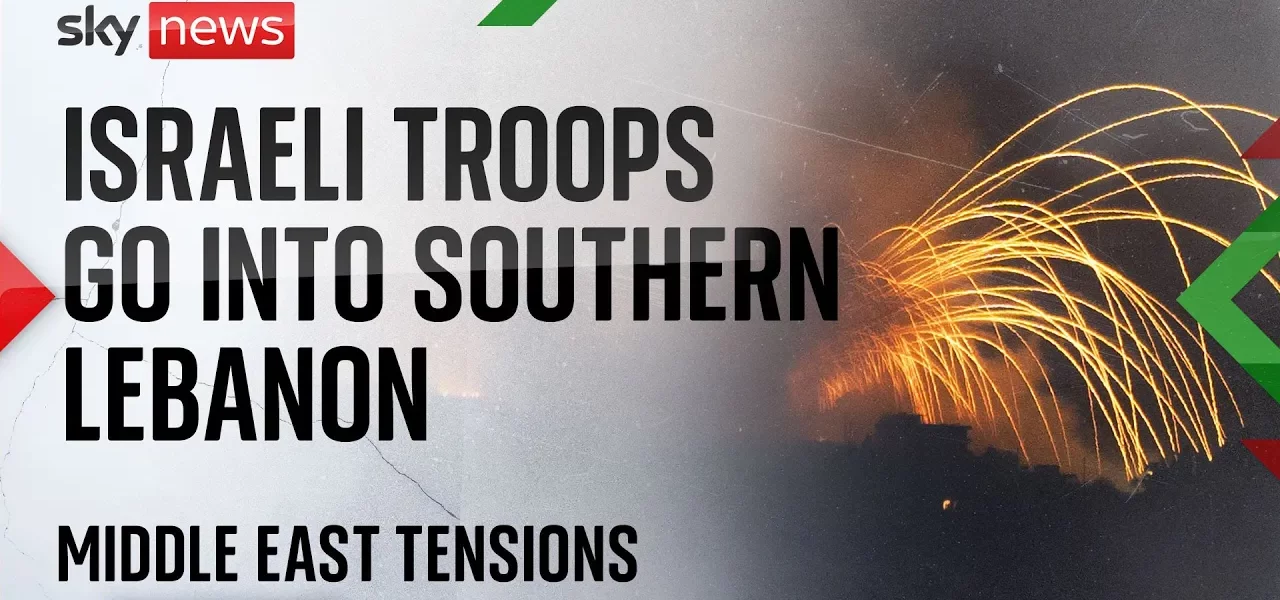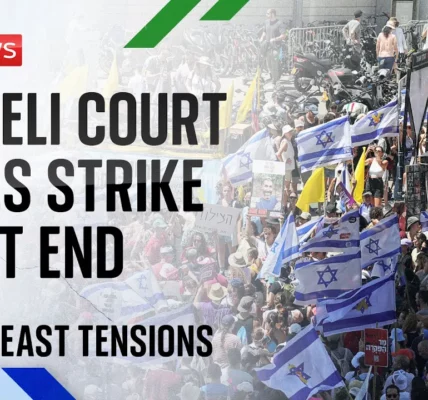Israel’s Military Operations in Lebanon: A Dramatic Escalation

This article delves into the recent military actions taken by Israel in Lebanon, examining the implications for regional stability and the ongoing conflict with Hezbollah. As tensions rise, understanding the motivations and potential consequences is crucial for grasping the complexities of Middle Eastern geopolitics.
Introduction
Recent weeks have seen a significant uptick in military activity along Israel’s northern border with Lebanon, signaling a potential shift in the ongoing conflict with Hezbollah. This escalation comes almost two decades after the last major war between the two entities, raising concerns among regional and global observers. The Israeli military has initiated targeted raids and airstrikes, marking a decisive response to perceived threats from Hezbollah, which has been launching rockets into northern Israel. Understanding the motivations behind these military operations is key to comprehending the broader implications for stability in the region.
The Nature of Military Operations
Localized Raids and Artillery Fire
Israel has described its current operations as “limited, localized, and targeted,” focusing primarily on sites believed to be associated with Hezbollah’s military capabilities. Observers have reported a steady beat of outgoing artillery fire, accompanied by rocket fire from both sides. The visibility of these operations underscores the heightened tensions along the border.
- Targeting Hezbollah’s military infrastructure
- Utilizing artillery and aerial bombardments
- Maintaining a focus on localized engagements
Troop Mobilization
In the days leading up to the border incursions, Israel has amassed significant troop concentrations in northern regions. This mobilization is indicative of a strategic decision to escalate their military response, reflecting a commitment to addressing the threats posed by Hezbollah effectively.
Political Context and Motivations
Defense Minister’s Address
During a meeting with soldiers, Israel’s Defense Minister emphasized the need to prevent Hezbollah from firing rockets into northern Israel, which has become a pressing concern for the Israeli government. He articulated the mission as one that would employ all necessary military resources—air, sea, and land—to ensure the safety of Israeli civilians.
Regional Implications
As Israel intensifies its military operations, the potential for a broader conflict looms large. The Prime Minister’s comments hint at a wider confrontation, suggesting that Iran, a key backer of Hezbollah, could become a target in this escalating conflict.
- Increased rocket attacks on Israel from Hezbollah
- Potential escalation into a wider regional conflict
- Impacts on Israeli civilian life and security
Impact on Civilians and Communities
Humanitarian Concerns
The ongoing military actions have led to devastating consequences for civilian populations in Lebanon. Reports indicate that many communities have suffered severe damage, resulting in numerous casualties and displacements. The humanitarian crisis is exacerbated by the airstrikes targeting not only military leaders but also civilian infrastructure.
Displacement and Refugees
With hundreds of thousands forced to flee their homes, the refugee situation is becoming increasingly precarious. The international community is watching closely as the situation unfolds, raising concerns about the potential for widespread humanitarian disasters.
International Reactions and Concerns
Global Alarm
As Israel escalates its military operations, allies and international observers express growing alarm over the potential for an all-out war in the region. The interconnected nature of Middle Eastern conflicts means that actions taken by Israel could have far-reaching implications for neighboring countries and beyond.
Strategic Alliances
The developments also threaten to redraw alliances, as nations evaluate their positions in light of the evolving conflict. The shifting dynamics may lead to new coalitions forming either in support of Israel or in opposition, further complicating an already volatile situation.
Conclusion
Israel’s military operations in Lebanon represent a significant escalation in the ongoing conflict with Hezbollah and reflect broader regional tensions. As military actions continue and civilian impacts grow, the potential for a wider conflict remains a pressing concern. Understanding the complexities and motivations behind these operations is essential for grasping the future of Middle Eastern geopolitics. For those interested in following this evolving situation, further insights and updates can be found in our related articles on regional conflicts and military strategies.
“`




